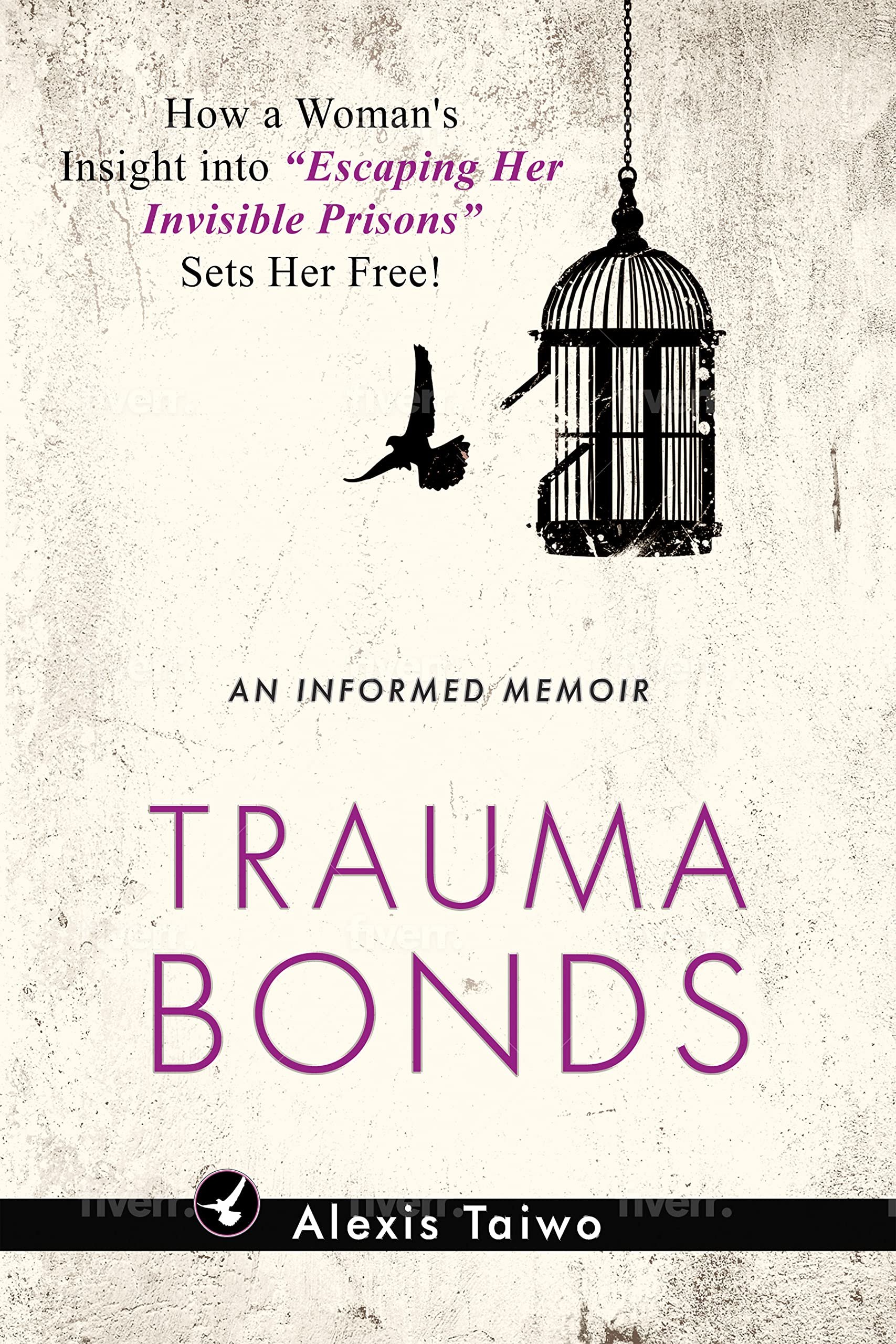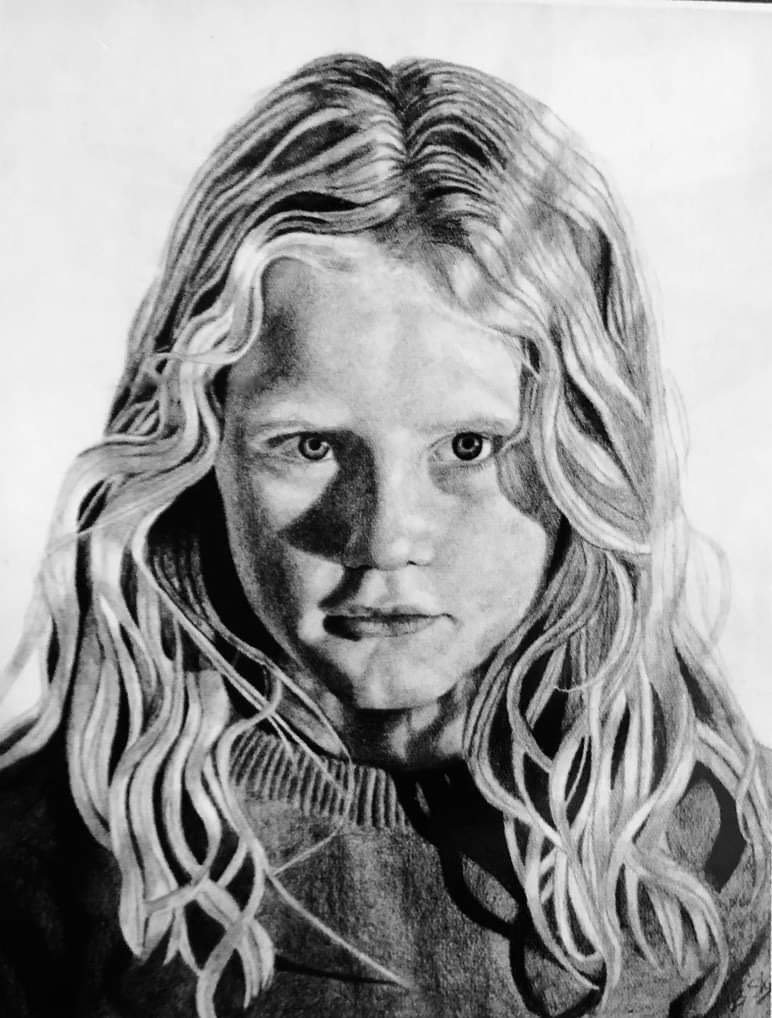Trauma Bonds
Trauma Bonds: How a Woman's Insight Into Escaping Her Invisible Prisons Sets Her Free: An Informed Memoir
By: Alexis Taiwo
1 in 3 women experience severe physical abuse (though due to under-reporting it’s probably more)
Half of all women killed worldwide were killed by a partner or family member (not sure the time frame on this stat)
90% of males incarcerated in the US either witnessed or experienced domestic abuse as children
50% of all homeless women are fleeing domestic abuse
40% of law enforcement officer deaths are related to domestic violence calls
“There’s an abuse pandemic going on in plain sight.”
[Here are a few links to fact sheets. Some of the statistics might not match exactly due to the nature of how they surveyed, but the overall picture we see is pretty universal among stat sheets: Fact Sheet, CDC Fact Sheet, NCADV Fact Sheet, Agenda Statistics]
Alexis Taiwo has courageously written Trauma Bonds to share her own personal story with domestic abuse.
(In her book she is called Emily/Ebun but her pen name is Alexis so that is what I will refer to her by.)
From London to Nigeria to America, from childhood to adulthood, Alexis has endured one abuse after another— inside and outside of marriage. She is very transparent about her life, her feelings, and her thoughts. Having now processed these events, she provides insights that acknowledge where certain behaviors or thought patterns she had during that abuse were hindering her from seeking help or safety.
She reminds us of something very important: most abuse victims may not even label what they are experiencing as abuse. Many victims have lost their voice and their autonomy, their perspective of the world and what is healthy and not healthy. They often still love their partners or parents and rationalize the abuse, sometimes blaming themselves for causing it. The abuser has created a ‘trauma bond.’
This was the case for Alexis. One of the first instances of abuse occurred when she was very young. It was witnessed by her caretaker who stopped it in the moment but did nothing further to prevent or rectify the situation. This influenced how Alexis grew up understanding what happened to her.
I thought it was interesting that she talked about how it was common in their culture for parents to leave their children with other caretakers so they could pursue their dreams and then reunite later. This same concept happened in Simu Liu’s story he shared in his memoir We Were Dreamers.
In America there is a lot of negativity toward the nuclear family unit but I think there are many reasons to support that God gave us the nuclear family for our own protection and flourishing. As parents it’s easy to view children as inconveniences or hindrances to the goals we’ve set our sights on, but there are many benefits and rewards to the selfless sacrifice of putting our children’s needs before our own. Our roles as parents are so important and currently minimized in today’s culture— as Simu Liu and Alexis Taiwo reveal, cultures around the world!
Alexis talks about what she terms ‘the abuse bug,’ which is how she explains her tendency to be attracted to the wrong kind of men. It was almost like men knew she had been abused before and were taking advantage of her vulnerability. Strong, controlling, and decisive men were all she had known.
To complicate her situation further, she had 3 boys to care for. She only speaks about them briefly. I’m sure a whole other book could be written to detail about how her abuse affected and influenced her children as they grew up as well.
We know that domestic abuse is often a cycle from generation to generation. The statistics reflect that even witnessing abuse can cause harmful behavior for that person later in life.
Alexis wants to help and empower other women (or men) to recognize the prisons they may find themselves in and to find the courage to escape them.
Her story reflects how difficult it is to leave. Or to not return. There are often financial and economic barriers that prevent women from leaving or force them to go back to an unsafe place. They could easily find themselves homeless, jobless, penniless.
We need to do a better job at identifying abuse and helping those who find themselves trapped in these situations.
[Intermission: Alexis shared how drawing portraits was a source of income for her when she was struggling financially. As a fellow artist (kinda) I wanted to share these images with you to showcase her incredible talent!]
(Shared with permission of Alexis Taiwo)
(Shared with permission of Alexis Taiwo)
(Shared with permission of Alexis Taiwo)
I recently attended a fantastic seminar put on by Called to Peace Ministries that was targeted at helping pastors and members handle abuse better in their churches. So much of what Alexis shared in her book reflected what I heard in that seminar in terms of characteristics of abusers and victims, the challenges that come with leaving, the thought patterns that make victims stay, and the ways outsiders may make things worse instead of helping.
Unfortunately, there is a side of abuse that involves people taking verses from the Bible and twisting them to justify emotional, spiritual, physical, or sexual abuse. Alexis didn’t share experience with this, but she did mention the pressure she experienced about divorce, knowing that God doesn’t like divorce. But even this biblical concept is often misunderstood.
In Bible times, the strong words against divorce were to protect women because then men would marry with commitment and be discouraged from leaving their wives and families. These are not words to prevent women from escaping unsafe marriages.
How wrong it is that our churches would not feel like a safe place!
Alexis shows how it takes a lot of courage for a woman to tell someone that she feels unsafe or to tell someone what is going on. If we ignore women when they bravely speak up, or provide harmful advice or suggestions when they do, especially touting misinterpreted Bible verses, we are often keeping these women trapped, feeling unheard and uncared for.
As the subtitle indicates: this is an informed memoir.
We, as readers, need to be better informed on the topic of domestic abuse.
God has a heart for the oppressed and we should too. There is nothing in the Bible that would condone emotional, financial, physical, spiritual, or sexual abuse.
It is powerful that even through her trauma, Alexis still believed and trusted the Lord. She knew that he was with her the whole time and that he loved her and would make beauty from ashes.
“Knowing I could speak to Jesus directly was not only empowering but comforting.”
I do wish there would have been a bit more gospel presentation and discussion of how she dealt with her relationship with God and the evil she endured as I know that is a big spiritual roadblock for many people. I wish she would have explained more about the hope, justice, and comfort found in the Lord.
I am thankful for Alexis sharing her story and for the ways she is helping other women overcome similar hurts and struggles that she endured for far too many years.
Though I get some insights from this book, I still can’t imagine what it’s like to go through the things Alexis and others go through. I hope those reading this book will either be empowered to speak up or leave a dangerous situation or become more aware of those around us who are hiding their hurts.
This book is for everyone and I know God will get her words to the people who need to hear them.
Please also see the resources listed below.
Quick literary sidenote:
I think this book would have benefited from one more edit. There were some grammatical errors, some extra italicizing of words in the first part that was a bit distracting, and ‘section’ titles that broke the flow of the writing too much.
However, the writing voice of this book is very informal and personal, and so I suppose in some ways it speaks to the authenticity of the author sharing her story.
It may need better formatting, but regardless, it is an important read and it doesn’t become less true or relevant because of these things.
I also want to share RESOURCES here for people to access:
Other Relevant Books:
Is it Abuse?: A Biblical Guide to Identifying Domestic Abuse and Helping Victims by Darby Strickland (I haven’t read/reviewed this one yet but it’s on my TBR)
Why Does He Do That?: Inside the Minds of Angry and Controlling Men by Lundy Bancroft
Called to Peace: A Survivor’s Guide to Finding Peace and Healing After Domestic Abuse by Joy Forrest
See What You Made Me Do: Power, Control, and Domestic Abuse by Jess Hill (Alexis provided this resource in a list at the back of her book)
This organization has helped hundreds of women all across the country navigate their situations. They use advocates who are trained and trauma/abuse informed. They assign one or more advocates per case who are there to encourage and assist however the situation calls for. (Women are assigned to women, men to men)
If you are a victim and need help, reach out to them!
If you want to help other women, you can be trained to become an advocate! They are in need of more advocates.
Assessments:
(These are questionnaires that will help determine the level of danger a person is in)
www.dangerassessment.org/DA (the shorter option)
www.mosaicmethod.com (will take about 45 minutes)
This is a diagram to show different tactics abusers use to control and gain power over their victims.
Check your State Attorney General Crime Victim Assistance Programs
For Iowa, there are departments specifically there to help victims in a variety of ways and I’m guessing other states have this too.
For Iowa:
Iowa Vine Program (This is a notification system for victims to know when offenders are moved/released, etc.)
**Received a copy of this book via the author**
You may use my affiliate link below to purchase a copy.
Share this book review to your social media!





